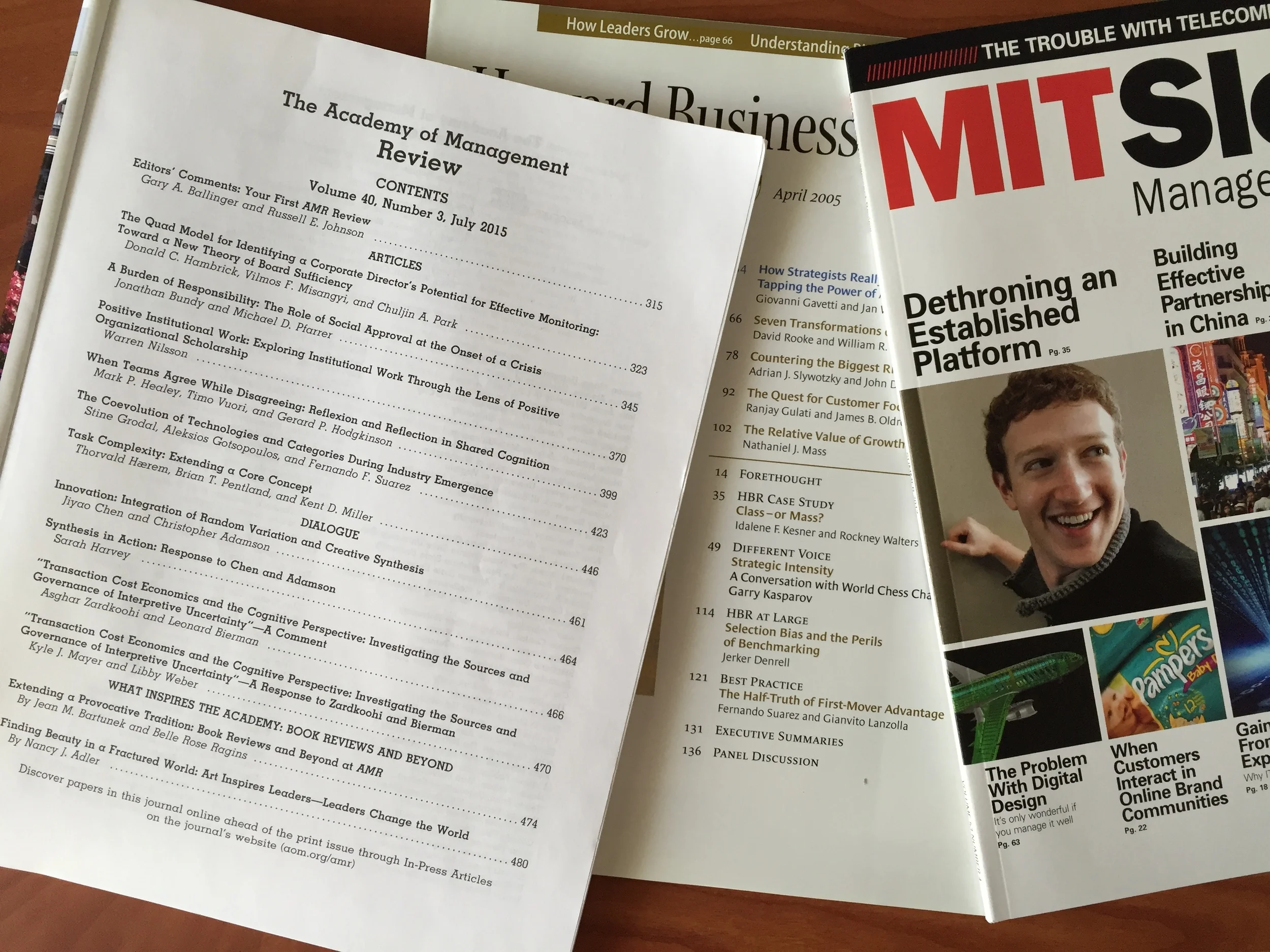“An Integrative Perspective of Organizational Responses: Routines, Heuristics and Improvisations in a Mount Everest Expedition”
/Organization Science, 2019, vol. 30(3): 573-599 (with Juan S. Montes )
Understanding how organizations operate in different environments has been at the core of organizational research for decades. Three distinct bodies of literature have emerged, with very limited cross-pollination among them: routines, heuristics, and improvisation. We add to the existing literature by studying these three types of organizational responses simultaneously via an in-depth, longitudinal study of an organization that encountered increasing levels of environmental dynamism. We pay particular attention to explain how and why routines broke down, prompting the emergence of heuristics or improvisations, as well as when these three responses were used in tandem, and when they interacted with each other. Our theoretical model identifies the triggers of heuristics and improvisations and the focal context that led to routines breaking down. We define focal context as a constructed temporary reality that encompasses both the objective traits of the environment experienced by the organization at a particular point in time, as well as the subjective perceptions that organizational members had of that reality. We also identify the mechanisms of cognitive search and social convergence that led to the creation of non-routine responses. Finally, we use our insights to clarify the existing overlaps in the conceptualization of the three organizational responses. Our field study is based on a mountaineering expedition to climb Mount Everest up one of the most difficult sides of the mountain, the Kangshung face, an archetypical case that is particularly well suited to the development of a new theory in where rich data are required to study the phenomena.


